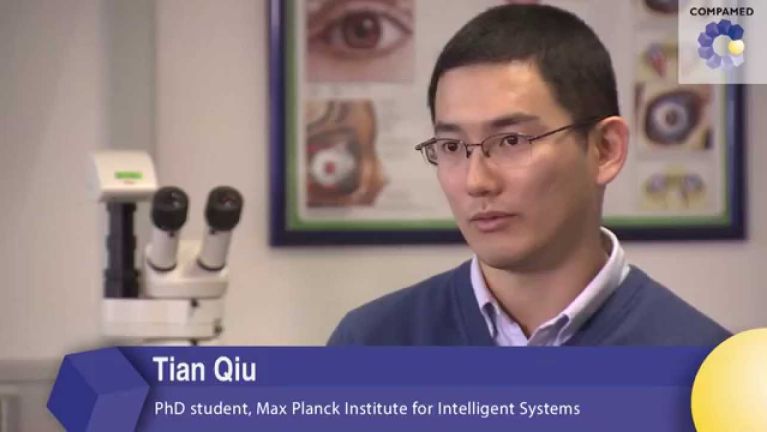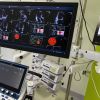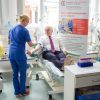Medical innovations from Germany
Robotics, artificial intelligence, new materials: intense medical research in Germany for the future. Three examples.

Germany offers excellent conditions for innovations. Deutschland.de presents three scientists and their research areas.
Dr Tian Qui is researching sensors and micro-robotic systems for medical purposes. He heads a new unit founded at the University of Stuttgart in July 2019. The Biomedical Microsystems Unit belongs to the Cyber Valley Research Group in southern Baden-Württemberg. “Our work focuses on the development of autonomous systems that can independently work their way through tissues,” explains the engineer from China, who came to the Max Planck Institute for Intelligent Systems in Stuttgart to research for a PhD. Qui and his colleagues are the first team in the world to successfully navigate a nanorobot through the vitreous body of a pig’s eye. In the future this robot should be able to deliver medications to the precise place in the body where they are needed.
Dieses YouTube-Video kann in einem neuen Tab abgespielt werden
YouTube öffnenThird party content
We use YouTube to embed content that may collect data about your activity. Please review the details and accept the service to see this content.
Open consent formIn the department of Digital Health – Personalized Medicine at the Hasso Plattner Institute (HPI) in Potsdam, research is being carried out into new possibilities of digitization for medicine of the future. Dr Hanna Drimalla is working as a postdoctoral researcher at the HPI. She is a psychologist and computer scientist whose specialist area is risk factors related to psychological illnesses. “We are currently investigating whether it is possible to measure stress reactions, such as the rise in cortisol levels in the body, in relation to micro-changes in the volume and frequency of the human voice,” she explains. An initial pilot study has already been completed, with very promising results.

The pace of personalized medicine is rapidly increasing. This development is particularly visible in the area of medical implants. Dr Theodor Doll is researching in this area at the Fraunhofer Institute for Toxicology and Experimental Medicine (ITEM) in Hanover. Together with his team, Dr Doll has developed a trailblazing 3D printing procedure that enables the production of medical silicone rubber. Dr Doll, who is also Professor for Biomaterials Engineering at the Hanover Medical School, is proud of ITEM’s interdisciplinary approach. “We’re not only working on the materials, we’re also focusing on the development of smart implants, with an all-embracing view of the scientific, regulatory and societal implications.”

You would like to receive regular information about Germany? Subscribe here:



